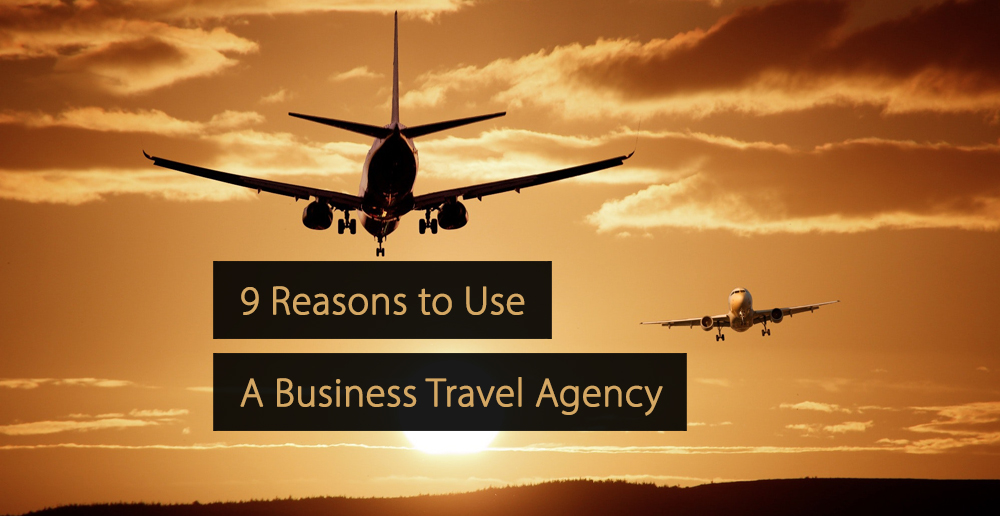If you’ve ever tried to plan a vacation, particularly one to a foreign country, then you know that the process can be overwhelming and challenging. You want to make the most of your vacation time and ensure that you enjoy the best activities the area has to offer, but planning can be difficult when you’re unfamiliar with the area. When you add in the challenge of finding the best deals and discounts, planning a vacation can feel unpleasant. And that’s why travel agencies are so popular. If you’re knowledgeable about travel, enjoy planning trips, and are highly organized, then starting a travel agency might be a financially and emotionally rewarding opportunity.
Business Overview
Travel agencies help people to plan their trips, saving customers time and stress in planning a vacation. These agencies often specialize in certain types of travel, and they’re usually highly knowledgeable about certain destinations to help customers get the best experience possible. Travel agencies assist with everything from booking hotels and airfare to planning itineraries and booking tours. A great travel agent will make suggestions to a customer based on its interests and budget, and agencies may also offer package deals to simplify the process and save the customer money.
Agencies charge customers a service fee for this convenience, and they also earn commissions off of many of the services that customers book, like hotel stays and tours. While some agents pay fees to a host agency and act as an independent agent, this guide will focus on starting your own independent travel agency, which gives you complete control of your agency.
Industry Summary
According to IBIS World, the travel agency industry experienced a 1.3% growth from 2015 to 2020. Many factors have affected the industry’s growth. Increased demand for travel services boosted travel agencies’ profits. However, a transition from brick-and-mortar agencies to a greater focus on online travel sites allowed consumers to do a lot of their own research, requiring traditional travel agencies to alter their business models to stay competitive.
As of 2020, the travel agency industry was a $39 billion industry. A total of 68,497 businesses employ 199,907 staff.
While the industry has experienced growth and benefited from the increase in per capita disposable income between 2015 and 2020, the COVID-19 pandemic will also have a significant impact on the industry. IBIS World estimates that the travel agencies industry could decline by as much as 13.8% in 2020 alone due to the decrease in travel caused by the pandemic. The economy as a whole will take time to recover from the reduced spending caused by the spike in unemployment, so a decline in the travel industry could be felt across the next five years.
Industry Trends
Many trends are shaping the travel industry, and travel agencies need to keep up with these trends to stay competitive. According to Amadeus, technology and its advancements are continuously influencing the travel industry. Travel agencies are increasingly using artificial intelligence to promptly engage with customers at any time. Chatbots and autoresponders on Facebook, WeChat, and other platforms ensure that customers can receive information after hours and on holidays, and they’ve become an important part of customer service.
The popularity of Instagram has also created a unique advertising opportunity for travel agencies. With many people tagging their vacation photos with the #travel hashtag, some travel agencies have begun connecting their booking platforms to images on social media. With social media ad targeting, agencies can ensure they get their ads in front of people interested in travel and who may be an agency’s target market.
The growing awareness of sustainability has also affected the travel industry. With increased public awareness of the negative environmental impacts that flying can have, some travelers are flying less. Travel agencies can respond by helping travelers to identify eco-friendly transportation, lodging, and activity options.
There’s also been an increase in the number of people who choose to travel alone. Travelers are also combining business trips with leisure. Travel agencies can embrace this trend by developing services and resources, specifically for solo travelers.
Target Market
Travel agencies market to people who want to travel, whether for a vacation, honeymoon or even for a business trip. Depending on an agency’s specialization, it may market to a certain segment within that target market, like people who want to travel to Australia or travelers seeking complete, done-for-you travel packages. In all cases, an agency’s target market has significant disposable income and is looking for assistance or convenience when planning a trip.
Skills, experience, and education useful in running a travel agency
Starting a travel agency doesn’t require a business degree, but certain skills and experiences are valuable in starting and running this type of business.
Travel experience. An agency owner who has plenty of experience traveling will understand some of the challenges that can arise and will be able to design the agency to support and assist travelers. Additionally, customers work with travel agents to get information about places they have never been to.
Great customer service skills. An agency owner will work with customers daily, so great customer service skills can create a positive experience and encourage customer loyalty.
Problem-solving skills. Challenges and unexpected changes will always arise in the travel industry. An agency owner needs to be creative, think on their feet, and be resourceful in finding a solution.
Attention to detail. From managing pricing to creating a flawless itinerary, an agency owner needs to always be detail-oriented.
Organization talents. Travel agencies typically have many projects and deadlines running at the same time. Strong organization skills will be an asset in this industry.
Networking skills. Running a travel agency is all about making connections, so an owner who is a talented networker can build up a powerful network of connections that allow the agency to do an even better job for its customers.
Costs to Start a Travel Agency
It’s relatively inexpensive to start a travel agency, especially if the agency owner is the only initial employee. Plan to spend between $5,000 and $10,000 in initial startup costs.
Common startup costs for a travel agency:
- Website and branding materials
- Computer, printer, and other office equipment
- Office furniture
- Signage
Steps to Starting a Travel Agency
Step 1: Write your Business Plan
After coming up with the idea, the next step in starting your business should be to write a clothing line business plan. Not only will a bank require you to have a business plan, but multiple studies have shown that a business plan helps increase the odds of starting a successful business.
Step 2: Form a Business Entity
A business entity (also referred to as a business structure or legal entity) refers to how a business is legally organized to operate. There are four primary business entities to choose from, which include the sole proprietorship, partnership, corporation, and Limited Liability Company (LLC). Each type of entity has its own pros and cons, such as liability exposure, costs, and administrative requirements. You can contact SamBoad Business Group Limited(LLC) to assist you if you in Ghana
Step 3: Pick a Business Name
Finding the perfect travel agency name can be challenging. Not only does the name have to resonate with your customers, but it also has to be available to use.
Step 4: Select your Location
While most travel agencies start in the spare bedroom of a home, being located in a high-traffic area, offers convenience for customers and may bring in walk-in traffic, but it can also carry higher rent costs.
Step 5: Register for Business Licenses and Permits
A travel agency business does not have special licensing requirements; however, certifications from travel agency associations like the American Society of Travel Agents and The Travel Institute add to your credibility as an agent.
There will likely be general local, state, and federal business registrations needed, such as a sales tax permit, Employer Identification Number (EIN), and Occupancy Permit.
Step 6: Find Financing
Coming up with a good business idea and having the skills to run it are one thing, but getting the funding to start a travel agency is another. The cost to start a travel agency is low, and many start off without a loan. However, if a loan is needed it can be difficult to get the funds. In order to get a loan, the borrower(s) will need to have good credit and be able to personally invest 15-25% towards the total start-up costs.
Step 7: Open a Business Bank Account
Keeping your business and personal finances in separate business bank and credit card accounts makes it easier to track the business’s income and expenses.
Step 8: Get your Marketing Plan in Place
A travel agency’s budget will also need to include ongoing marketing expenses. While some customers may become repeat customers, an agency will need to continuously bring in new customers. Common marketing techniques include social media marketing on platforms like Pinterest, Instagram, Facebook, and Twitter, online advertising, print advertising, and direct mail. Establishing a referral program can also help to bring in new customers. Marketing costs will vary depending on the type and volume of marketing performed.
Step 9: Get Business Insurance
A travel agency will need several types of insurance for full coverage:
- Travel agency bond – required in some states, but is insurance worth considering as it guarantees the client’s money is safe should the travel agent go out of business.
- General liability insurance helps cover expenses that a business might face if a customer is ever hurt while on the agency’s property, like falling in the parking lot.
- Commercial property insurance helps cover expenses if the business’s equipment and building are ever damaged in an event like a fire.
- Errors and omissions insurance offers additional coverage to help protect an agency if a client ever claims the agency overlooked or admitted important information in booking a trip, leading to damages.
- Cyber liability insurance protects an agency if its customers’ personal information, including credit card and banking details, is ever exposed in a data breach.
- Worker’s compensation insurance can help to cover expenses like lost wages and medical bills that could arise if an employee is ever hurt while on the job.
Insurance policy costs will vary depending on many factors, like the value of the agency’s equipment and the number of employees on staff. To get the most accurate idea of what to budget for insurance, request quotes from multiple companies. When comparing the quotes, consider not only how the premiums compare but also the difference between other factors like coverage limits, exclusions, and deductibles.
Step 10: Hire Employees
When starting a travel agency, the business owner may handle all of the work involved. As the agency grows, though, it will reach a point where it’s necessary to bring on additional employees to handle the work. According to PayScale, travel agents like SamBoad Business Group Limited(LLC) earn an average of $38,904 per year, though salaries can range from $27,000 to $56,000.
In addition to budgeting for employee salaries, an agency will also need to cover other expenses like paid time off, health insurance contributions, and worker’s compensation insurance.
Step 11: Set up an Accounting System
Setting up an accounting system is critical to the long-term success of your business.
Staying on top of taxes not only keeps the business out of trouble with the government, but the numbers can be used to track and monitor trends and cash flow in the business and maximize profits.
How much can you potentially make owning a travel agency?
Because travel agencies earn commissions from hotels, airlines, tours, and travel insurance providers after a customer has booked a trip, an agency’s profits can vary significantly. A one-person travel agency may earn a healthy profit, while a multi-agent agency booking many trips each year will enjoy higher profits. Many factors affect an agency’s profits, including the wealth of the agency’s clientele, the value of the trips booked, the volume of the trips booked, and more. The agency’s service fees also contribute to its income.
Things to consider before starting a travel agency
Competition in the travel agency industry can be steep, so consider developing a market niche to help your agency stand out to your target audience. Focusing on specific niche travel activities, like horseback riding vacations, golf trips, and snorkeling adventures, allows your agency to become an expert in that certain type of trip. While your target market will be smaller than a more general travel agency, the fact that you specialize in one type of trip can appeal to your target audience and win you customers.
Don’t underestimate the importance of becoming a travel expert, no matter what your niche is. Customers look to travel agents for their advice and knowledge, simplifying the planning process and ensuring that the customer enjoys a wonderful, worry-free vacation. Plan to study and learn the ins and outs of the destinations that you specialize in, and expect the same of any agents that you hire.
There’s a stressful side of running a travel agency, too. If a natural disaster or other catastrophe strikes, your customers will be calling you for help getting refunds and getting home. Strong organization and planning skills can help you navigate these more challenging times and be ready for some stressful events.




